Rossini is the meat-and-two-inappropriately-shaped-veg of summer opera; he’s the wag in the novelty bow tie, the two satyrs shagging enthusiastically among the lupins and lobster on the cover of this year’s Glyndebourne programme. His comic bel canto frolics are the natural soundtrack to this off-duty opera-going, a champagne-perfect combination of frothy plots and fizzing coloratura. So why are they so hard to pull off?
Perhaps it’s the pressure of expectation. It has been more than 30 years since Glyndebourne last staged Il barbiere di Siviglia, and hopes were high for Annabel Arden’s new production. For the first half-hour it looks as though they’re going to be met. Enrique Mazzola’s affable, patrician overture skips along with understated ease — no hint of slapstick here — keeping the London Philharmonic Orchestra on the balls of their feet. Joanna Parker’s designs dissolve ye olde Seville into something more crisply contemporary, glancing towards the 18th century while standing somewhere nearer to the 1950s — all graphic shapes and deep colours.
But into this stylish frame steps a production so keen to avoid cliché, to walk around the operatic banana skins and avoid the whoopee cushion, that it forgets to bring the humour. In place of Rossini’s farce we get something more abstract, more surreal. Harpsichords descend from the sky; Basilio’s cassock belches the smoke of hidden hellfires; Almaviva is pursued by a troupe of masked commedia dell’arte characters who may or may not be real. But just as you wouldn’t laugh out loud at Dalí’s melted clocks or elephant-tuba, so there’s no real urge to here. Why direct a comedy if you’re so insecure about its jokes that you chuck them all out and start from scratch?
Arden is fortunate in her cast, however, who go a long way towards supplementing any dramatic deficiencies. In Taylor Stayton’s Almaviva and Björn Bürger’s Figaro she has a winning double act — a pair of young, charismatic singing-actors whose smiles are only the prelude to vocal agility and coloratura pizzazz. Bürger in particular, now scrambling out from the orchestra pit, now popping out of a trapdoor, is all swaggering star power — a worthy match for Danielle de Niese’s full-wattage Rosina. A blinding assault of charm and animation, this Rosina might struggle to convince as a victim, but as a heroine she ticks all the boxes from her bouncing ringlets to her clicking heels. If the trade-off is moments of blowsy, overripe tone (the added final aria is a poor fit for de Niese’s technique), then it’s a price worth paying for a voice of real colour and character.
But even the magnetic de Niese is almost upstaged by the cast’s two veterans. Janis Kelly’s Berta comes from nowhere to dispatch her aria with exquisite comic timing (and even better top notes), while Alessandro Corbelli’s Bartolo repeatedly silences all the dramatic chaos around him with a single carefully deployed eyebrow or shoulder shrug. It’s a masterclass in less is more, something Arden’s production could do well to learn from in revival.
Excess is also the hallmark of Will Tuckett’s L’italiana in Algeri over at Garsington. You can see how it happened; so weak is Rossini’s early comedy, so cheek-bitingly offensive to anyone not lucky enough to be born an Italian male, that the temptation is to smother it in visual whipped cream and choreographic sprinkles and hope no one notices the festering horror underneath.
George Souglides’ designs give us Algiers via La Dolce Vita, Gershwin’s Crazy for You and Busby Berkeley. Moorish fantasy meets Broadway bright lights in an ingenious visual mash-up that must serve as a life raft to carry the assorted oddities and ambitions of this ailing production.
A persistently trickling fountain (have we learned nothing from Katie Mitchell’s Lucia?), a dancing harem of hijab-clad lovelies, a chorus of slaves whose favourite hobby is hand-jiving, more sugary confections than a series of The Great British Bake Off — all these elements conspire to distract from the actual business of the opera. So focused is Tuckett in the details that he seems to have forgotten to direct his principals, who mostly just look lost or ill at ease. Only Riccardo Novaro’s Taddeo (a late addition to the cast) emerges unscathed.
Vocally exciting but dramatically lacking, Ezgi Kutlu’s Isabella simply can’t sustain the weight of allure the libretto heaps upon her. She’s courted variously by the unfocused campery of Quirijn de Lang’s Mustafa and Luciano Botelho’s Lindoro, whose pinched delivery fails to seduce. Katie Bray (Zulma) and Mary Bevan (Elvira) offer what they can by way of support, but find themselves lost in the texture of ensembles.
David Parry conducts a clean, brisk interpretation, but weighed down by so much dramatic ballast, HMS Parry (for so, mischievously, is the finale’s getaway ship named) is dragged almost to a standstill. Let’s hope that Garsington’s 2017 Turco in Italia fares better than his Italian cousin in Algiers.
Got something to add? Join the discussion and comment below.
Get 10 issues for just $10
Subscribe to The Spectator Australia today for the next 10 magazine issues, plus full online access, for just $10.

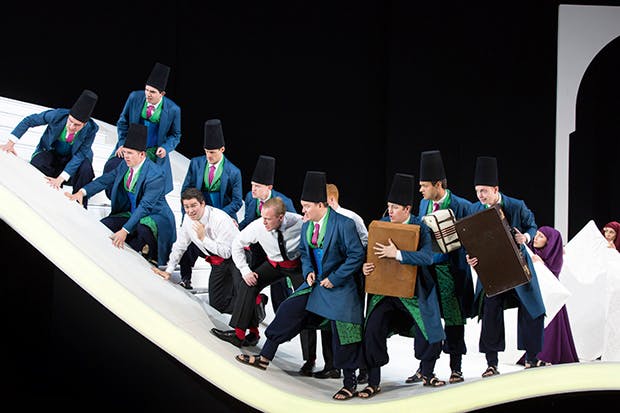
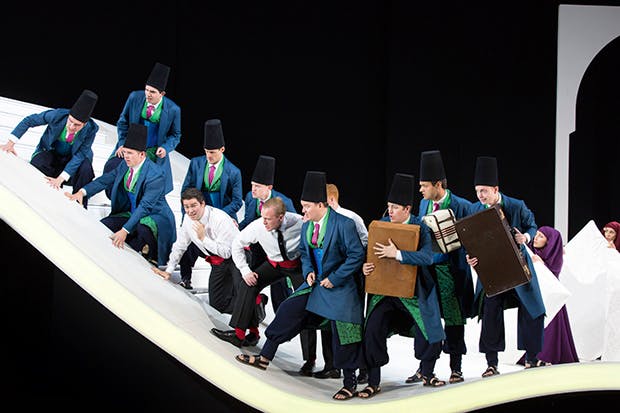
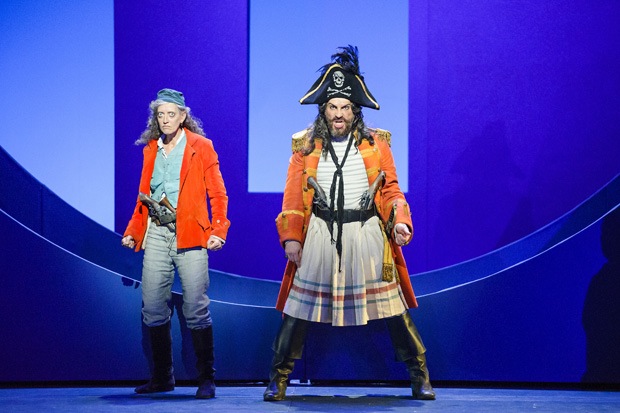

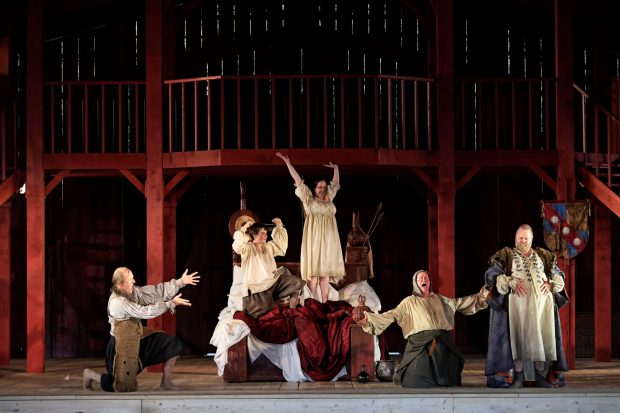
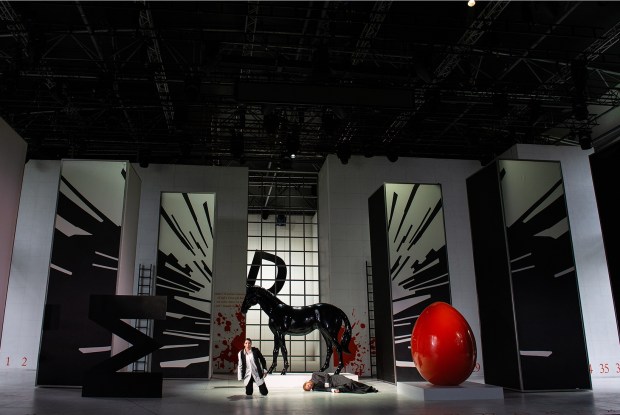
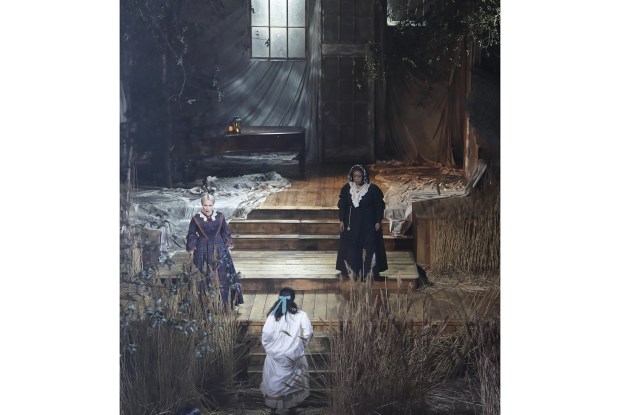






Comments
Don't miss out
Join the conversation with other Spectator Australia readers. Subscribe to leave a comment.
SUBSCRIBEAlready a subscriber? Log in